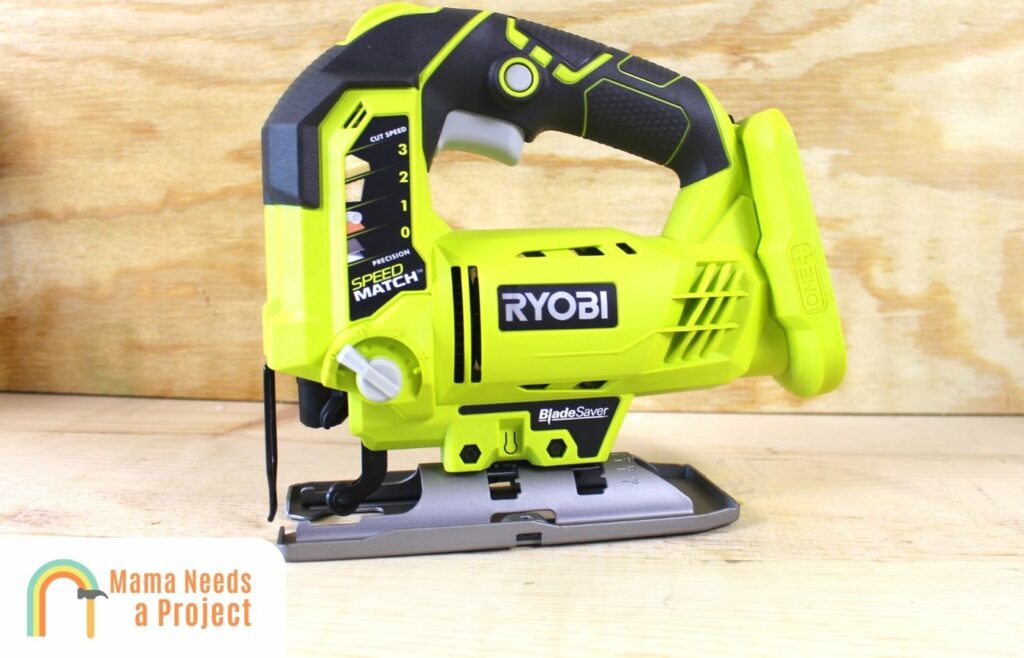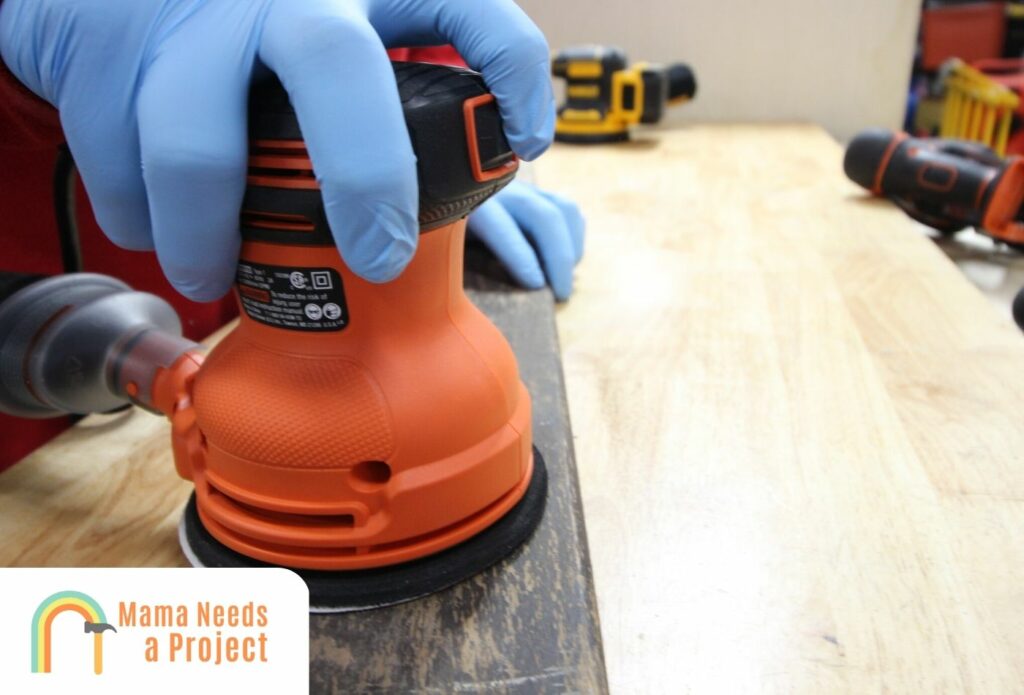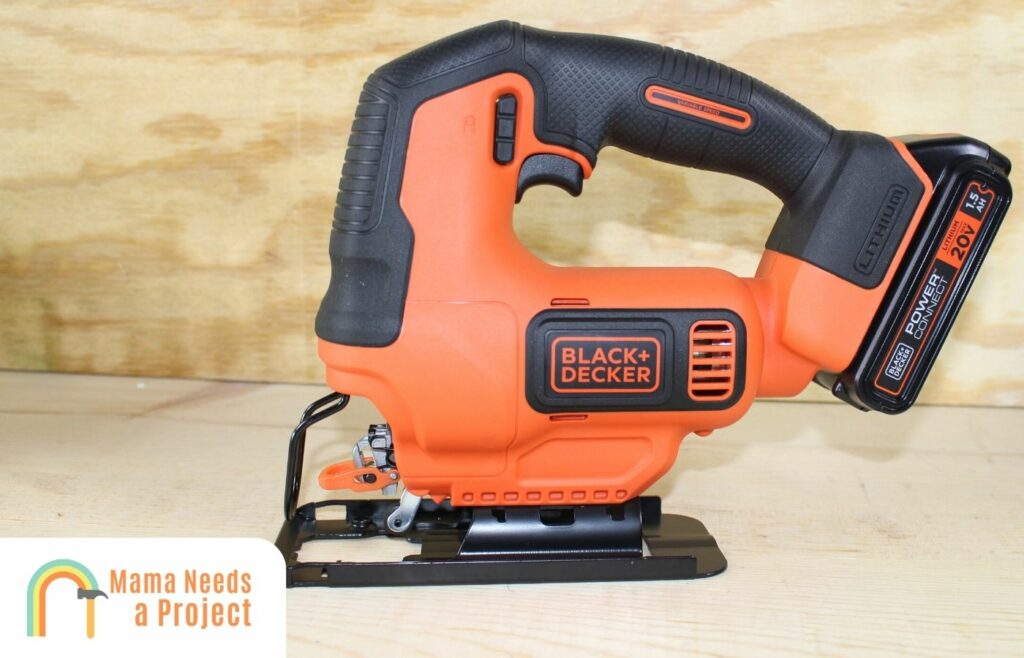Ryobi vs Black and Decker: Which is Better? (2024 Guide)
Ryobi and Black and Decker are two brands that offer a wide range of both corded and cordless tools.
I own several tools from both brands to help you determine which brand offers higher quality tools.
In this Ryobi vs Black and Decker comparison, I’ll help you decide which brand of power tools is best for your needs. Let’s dig in!
- Ryobi offers more durable and high performance tools that compete with more middle tier tool brands.
- Black and Decker offers more affordable tools for DIY enthusiasts and homeowners that can’t compete with
Ryobi vs Black and Decker
Tool Quality and Durability
Quality and durability are the two pivotal aspects that dictate the lifespan and usability of a tool.
As someone who has relied heavily on both Ryobi and Black and Decker tools, I’ve found that these brands target their offerings towards different users.
Ryobi tools, be it a cordless drill, table saw, or any other power tool, have always maintained a commendable standard of quality. The brand doesn’t claim a top-tier position, yet its tools are sturdy, well-built, and endure a significant amount of wear and tear. The quality of Ryobi tools is a testament to Ryobi Seisakusho, the large company that has been manufacturing power tools for decades.

Black and Decker, meanwhile, seems to aim their tools more towards homeowners and DIY enthusiasts.
These tools are generally reliable for light to medium-duty tasks and are known for being entry-level power tools that don’t break the bank. However, when it comes to durability, they may not be your first choice for intensive professional tasks or heavy-duty use.

Design and Performance
The design of power tools plays an influential role in determining their performance, and this is a field where both Ryobi and Black and Decker distinctly stand apart.
Ryobi tools have been designed with robustness in mind.
While they may lack the aesthetic appeal of some high-end brands, they make up for it with a comfortable grip and sturdy feel, both crucial factors when you’re handling tools for an extended period. Ryobi tools, such as their cordless drill or table saw, pack enough power to accomplish tasks ranging from assembling furniture to building decks with ease.
In contrast, Black and Decker’s tools feature a more lightweight design, an advantage for users who don’t have much experience handling power tools or require a tool for quick, light tasks. However, the lightweight design might mean a compromise in performance for more heavy-duty work. In terms of raw power, they may not be on par with a Ryobi tool, but for everyday home projects, they do a satisfactory job.
Product Lines and Offerings
When comparing product lines and offerings, both Ryobi and Black and Decker have an array of products tailored to different user needs.
Ryobi’s product line is incredibly diverse, offering a suite of power tools, hand tools, and outdoor power equipment. The standout feature of the Ryobi product range is the ONE+ system, incorporating over 175 different tools all powered by the same 18V lithium-ion battery. This system is great if you want to expand your collection of tools without having to worry about purchasing new batteries and chargers for each new tool.
Black and Decker also offer a similar interchangeable battery system with their 20V MAX range. Black and Decker’s offerings are varied and include power tools, outdoor power equipment, home cleaning products, and much more. Whether you need a power drill, hand tools, or a leaf blower, Black and Decker likely have you covered.

Warranty and Repair Services
Warranty and repair services often play a crucial role in choosing between tool brands. It’s important to know that the company stands behind its products and is ready to help if things go awry.
Ryobi generally offers a three-year limited warranty on most of their power tools. From my personal experience, I’ve found their warranty claim process to be straightforward, and the company is usually reliable in honoring it.
On the other hand, Black and Decker provide a two-year limited warranty on most of their tools. Although this is a bit shorter than Ryobi’s warranty period, they have been consistent in honoring their warranties and providing replacements or repair services for any manufacturing defects.
Pricing and Budget Considerations
Finally, when it comes to pricing, the choice between Ryobi and Black and Decker may largely depend on your budget and the specific tools you’re interested in.
Ryobi tools generally fall into the mid-range pricing category. Considering their commendable performance and the durability that Ryobi tools bring, they offer a good value for the money.
Black and Decker tools, on the other hand, aim to cater to a more budget-conscious segment of the market. Their tools are usually cheaper and more affordable, providing a satisfactory level of performance for their price range.
If you’re looking for more affordable tools, Black and Decker tools are best for you.
Ryobi vs Black and Decker Battery
When it comes to cordless tools, the battery is one of the most critical components.
If the tool has limited battery life, you might be forced to purchase multiple batteries or constantly charge them – neither of which are good options.
In terms of battery life and performance, Ryobi offers more power and life than Black and Decker.
Ryobi Pros and Cons
Ryobi Pros:
- Robust and Durable: Ryobi tools are known for their durability and the ability to withstand heavy use. They have a solid build and are suitable for a variety of tasks ranging from simple home DIY projects to some professional applications.
- ONE+ System: Perhaps one of the best things about Ryobi is their ONE+ system. This battery system allows you to use the same 18V lithium-ion battery for over 175 tools. This interchangeability is convenient and cost-effective as you don’t need to purchase separate batteries for each tool.
- Value for Money: Ryobi tools offer a great balance between cost and performance. They may not be the cheapest on the market, but the quality and durability they provide justify the price tag.
- Wide Range of Tools: Ryobi offers an expansive range of power tools, hand tools, outdoor power equipment, and more. This diverse product line means that you’re likely to find a Ryobi tool for nearly any job you can think of.
Check out this review of Ryobi tools for more info!
Ryobi Cons
- Not for Heavy-Duty Professional Use: While Ryobi tools are robust and reliable for most DIY and some professional tasks, they may not be the best choice for heavy-duty professional use. They’re not designed to withstand the rigors of a professional job site day in and day out.
- Price: While Ryobi offers value for money, their tools are not the cheapest on the market. For those on a tight budget or only needing a tool for occasional light use, the price tag may seem steep.
- Battery Life: While the ONE+ system is a great feature, sometimes the battery life of Ryobi’s 18V lithium-ion batteries can be inconsistent. This means you might need to have spare batteries on hand for longer projects.
- Weight: Compared to some other brands, Ryobi tools can be a bit heavier. This might not be a problem for short tasks but could become noticeable during prolonged use.
Black and Decker Pros and Cons
Black and Decker Pros
- Affordability: Black and Decker tools are known for their affordability. They cater to users who need tools for light to medium-duty tasks but don’t want to spend a fortune. For the casual DIYer or homeowner, they offer excellent value for money.
- Lightweight and User-Friendly: Black and Decker’s tools are generally lightweight and designed with user comfort in mind. They’re easy to handle, even for individuals who aren’t experienced with power tools, making them perfect for beginners and casual users.
- Versatile Product Range: Black and Decker provide a wide array of tools, from power drills to outdoor equipment. Regardless of the task at hand, there’s a good chance Black and Decker has a tool that can help.
Black and Decker Cons
- Not Suited for Heavy-Duty Tasks: Black and Decker tools are not designed for heavy-duty professional use. While they are perfect for light to medium tasks, they may not perform as well or last as long when used intensively on a daily basis.
- Durability: Although Black and Decker tools are capable and reliable for light duties, their longevity can be a concern. Compared to higher-priced brands like Ryobi, the lifespan of Black and Decker tools might be shorter, especially when used frequently or for heavy tasks.
- Battery Life: The battery life of Black and Decker’s 20V MAX system can be inconsistent. For longer projects, you might need to have extra batteries or a backup charging solution.
Wondering how Ryobi compares to other brands? Check out my Ryobi vs Makita comparison or my Ridgid vs Ryobi comparison for more info!
Final Thoughts
When comparing Ryobi vs Black and Decker, both brands have their unique strengths and cater to different types of users. Ryobi stands out for their better quality, robust performance, and expansive range of tools, making them a suitable choice for more demanding DIY tasks and even some light professional work.
Black and Decker, while not as powerful, offer affordable tools that are more than capable of handling a variety of tasks around the house.
From my personal experiences, I’ve found Ryobi tools to be reliable workhorses. Whether it’s a drill or a table saw, these tools have consistently powered through tasks with more ease than many other brands in the same price bracket. They are comfortable to use, thanks to their ergonomic design, and have stood the test of time in terms of durability.
On the other hand, Black and Decker tools are my go-to for quick and easy tasks. Their lightweight and comfortable design make them ideal for smaller projects and quick fixes around the house. While they may not last as long or perform as powerfully as some of the Ryobi tools, their cost-effectiveness is a significant advantage.

